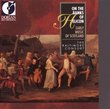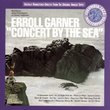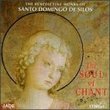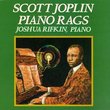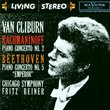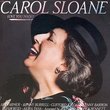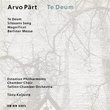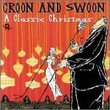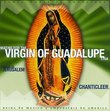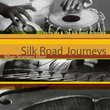| All Artists: Ensemble Clement Janequin, Visse, Jean-Marc Aymes Title: Canciones y Ensaladas - Songs And Instrumental Pieces Of The Spanish Golden Age / Visse, Ensemble Clement Janequin Members Wishing: 2 Total Copies: 0 Label: Harmonia Mundi Fr. Release Date: 2/10/1998 Genres: Special Interest, Pop, Classical Styles: Vocal Pop, Chamber Music, Historical Periods, Classical (c.1770-1830), Instruments, Strings Number of Discs: 1 SwapaCD Credits: 1 UPC: 794881416721 |
Search - Ensemble Clement Janequin, Visse, Jean-Marc Aymes :: Canciones y Ensaladas - Songs And Instrumental Pieces Of The Spanish Golden Age / Visse, Ensemble Clement Janequin
CD DetailsSimilarly Requested CDs
|
CD ReviewsFantastic CD 02/20/2000 (5 out of 5 stars) "This really is one of the best cd that i have brought in the last 2 or 3 years. The group lead by the eccentric Visse really supplies fire and punch to the music - gripping to listen to. Really exciting interpretstion - you simply cannot leave it alone." ¡Viva el Cid! Giordano Bruno | Wherever I am, I am. | 02/11/2010 (5 out of 5 stars) "The gothic Cathedral in the city of Burgos is one of the regal gems of architecture in Spain, richly beautiful inside and out, and Burgos is among the most pleasant small cities in all of Europe, at least partly because it's not over-touristed. Burgos was the capital of Christian Spain once upon a time. The Cathedral holds iconic importance for Spaniards, since it contains the ornate tomb of El Cid Campeador, the greatest hero of Spanish history. El Cid was not a legend, but the legend of El Cid is enshrined in the epic "Poema del mio Cid". High above the tomb, in the ceiling of the Cathedral, there's a glorious bejeweled star, the ultimate masterpiece of "mudejar" (Moorish) art in all of Spain. But please! Don't take this review as an inducement to allot a day to Burgos in your next vacation loop through Spain! Burgos deserves a week at least, and I'd rather that overnighters stay away.
In Spain's musical Golden Age, the 16th C, the master of the Burgos Cathedral instrumentalists and perhaps choristers was Juan Vasquez (1510-1560), born in Badajoz and probably educated in the Andalucian traditions of music. Vasquez was known as a skilled player of the "bajon" - the instrument that evolved into the dulcians and bassoons of the baroque era - and it's certain that a closed consort of bajons and bajoncillos was an important part of the Cathedrals' musical life. But Vasquez was also a composer of note; his villancicos, both sacred and secular, mostly in five voices, were published and sold well in both Spain and Italy. The grandees and the clerical potentates of Spain were lavish in their support of music in the 16th C. Vasquez shared the stage with the greatest composers of Spanish history: Victoria, Morales, and the two Guerreros. His music is distinct from theirs in style, perhaps showing some of his Andalucian roots. His villancicos are marvelously simple and elegant, totally horizontal, rather like golden braids of endless melody. Their simplicity conceals a highly polished harmonic artfulness. They are delightful to sing, equally delightful to play if one has a closed consort of instruments at one's service, and as delightful to hear as the sounds of a summer morning in Old Castile ... .... delightful to hear, that is, if sung well. Unfortunately, Vasquez has remained obscure to modern listeners. There are really only two recorded performances that do his music any justice, and this is one of them. [The other is "The Victory of Santiago" by The Concord Ensemble.] Four of Vasquez's exquisite 'love songs' are included on this CD, sung by the five male voices of Ensemble Clement Janequin and accompanied on the strings of the era, the small guitars and vihuelas of Renaissance Spain that have survived as folk instruments throughout the Hispanic world. ¡Ay¡ ¡Que mùsica tan suave! Also on this CD is a ten-minute villancico in the Catalan language, by Juan Brudieu, composed very much in the same musical vocabulary as Vasquez's. If Brudieu was capable of such sincere elegance in this one villancico, then he too is a composer worth searching out and hearing. Separating the lush strains of the villancicos on this CD are three "fantasies" for guitar by the specialist composer Alonso Mudarra (1510-1580), plus a "counterpoint" for two lutes by another forgotten master, Enrique de Valderrábano. The two "ensaladas" by Mateo Flecha (1481-1553) -- La Bomba and La Guerra -- represent a completely different genre of Spanish musical artistry. They are semi-theatrical 'popular' entertainments, music at its wittiest and most colorful, full of 'sound-effects' of crowd noises, market banter, gunfire and martial processions, etc. The Ensemble Clement Janequin makes the most of their bizarre dramatics by singing them in odd timbres, nasal/gutteral/squeaky/etc, to delineate the personae. "Ensalada" does mean 'salad', by the way, but it's the term used, even today, for such sketches of musical humor. This is a superb performance, vocally and instrumentally, and almost unique in its authentic interpretation of Spanish Renaissance music. I have to offer one warning; the texts are provided only in the original Iberian language and in French translation. Yes, I know that will irritate anglophones, but the performance is fine enough to compensate. Besides, Americans, surely you can ask your undocumented/underpaid/exploited baby-sitter or gardener to translate the Spanish for you." |

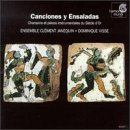
 Track Listings (15) - Disc #1
Track Listings (15) - Disc #1